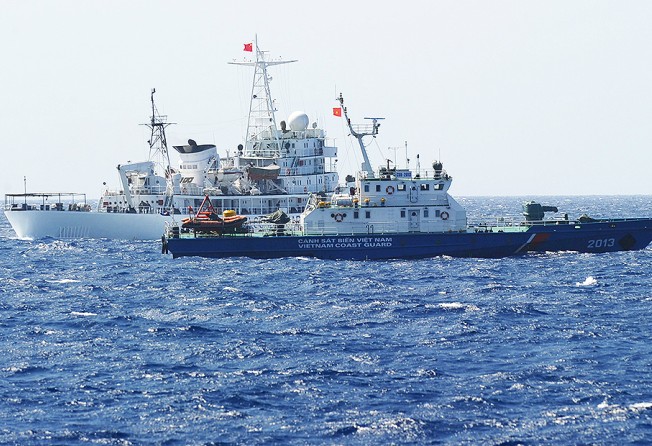America is a law unto itself when it comes to signing multilateral treaties
Jonathan Power reviews America's history of spurning global accords

Who makes the law of the sea as China and Vietnam clash over China moving an oil rig close to an island some 150 nautical miles from the Vietnamese mainland?
One would hope that China, which has ratified the UN Law of the Sea treaty, would seek international arbitration. It refuses to.
Has this got something to do with the fact that the US has not ratified the treaty? The Chinese don't say so explicitly, but if the world's only superpower refuses to sign up, why should China pay the treaty due regard?
As for the US itself, it has an awful track record in ratifying international treaties, usually thanks to the Senate's habitual blocking behaviour. It takes only one-third of the Senate to stymie a treaty. Even though, for example, the US played an important role in setting up the International Criminal Court for prosecuting war crimes, and president Bill Clinton wanted the US to sign up, the threat of the Senate that "it would be dead on arrival" meant it was never submitted for ratification.
Nevertheless, as is often the case with the US, it supports the court's work in day-to-day practice. It does the same with the Law of the Sea. Still, failing to ratify makes the US position rather weak when it tries to lean on China to get off Vietnam's back.
David Kaye writes in Foreign Affairs that the Senate "rejects multilateral treaties as if it were sport". After the first world war, it rejected the US joining the League of Nations, the precursor to the UN. Perhaps membership would have helped avert the rise of Nazi Germany by forging a more sensitive policy over German reparations. Who knows?
In more recent times, the US rejected the Convention on the Rights of Persons with Disabilities, the Kyoto Protocol on climate change, the Comprehensive Nuclear-Test-Ban Treaty and the Convention on the Rights of the Child (which only Somalia and South Sudan, besides the US, have not signed).
The US finally ratified the Convention on the Prevention and Punishment of the Crime of Genocide in 1988, 40 years after it signed it. But this was only because right-wing president Ronald Reagan made a supreme effort to convince his fellow Republicans in the Senate.
It was 26 years - after 109 other states had signed up - before the US ratified the International Covenant on Civil and Political Rights, an instrument which it waged a long campaign for China to sign up to, and which it now uses to upbraid China's human rights abuses.
The US has still not ratified one of the other principal treaties enshrined in the International Bill of Human Rights, the International Covenant on Economic, Social and Cultural Rights. The omission allows many countries, including China, to accuse the US of having double standards on human rights.
But all cannot be blamed on the Senate. In 1979, president Jimmy Carter filed a suit against Iran before the International Court of Justice for taking US diplomats hostage. Yet, six years later, when the court ruled against the US in a case over the mining of Nicaragua's harbours, the US, under Reagan, withdrew its membership.
Some of the above has only a tangential relationship with what is going on between Vietnam and China at the moment. But much relates to it. The US has failed to be credible in a good many parts of the international arena.
America has lived with its moral and diplomatic ambiguities over the application of international law for too long. If it wants other countries to toe the line, it has to toe the line itself.
Jonathan Power is a syndicated columnist